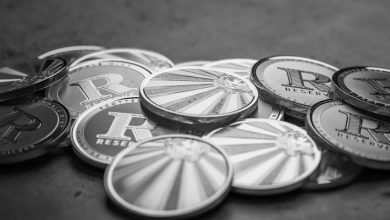The Connection Between DeFi and Non-Fungible Tokens

- Understanding Decentralized Finance (DeFi)
- Exploring the World of Non-Fungible Tokens (NFTs)
- The Rise of DeFi Platforms in the Crypto Space
- How NFTs are Revolutionizing Digital Ownership
- Bridging DeFi and NFTs: Opportunities and Challenges
- The Future of Finance: DeFi and NFTs Working Together
Understanding Decentralized Finance (DeFi)
Decentralized Finance, or DeFi, is a financial system that operates without traditional intermediaries such as banks or brokerages. Instead, DeFi relies on blockchain technology and smart contracts to provide financial services directly to users. This decentralized nature of DeFi allows for greater accessibility, transparency, and security compared to traditional financial systems.
One of the key components of DeFi is the use of non-fungible tokens (NFTs). NFTs are unique digital assets that represent ownership of a specific item or piece of content. By utilizing NFTs, DeFi platforms can offer a wide range of financial products and services, such as decentralized exchanges, lending and borrowing protocols, and asset management tools.
Through the integration of NFTs, DeFi platforms can enable users to tokenize real-world assets, create new forms of digital collectibles, and participate in unique investment opportunities. This intersection of DeFi and NFTs has the potential to revolutionize the way we think about finance, ownership, and value in the digital age.
Exploring the World of Non-Fungible Tokens (NFTs)
Exploring the world of non-fungible tokens (NFTs) opens up a whole new realm of possibilities within the realm of decentralized finance (DeFi). NFTs are unique digital assets that are indivisible and cannot be exchanged on a like-for-like basis. They represent ownership of a specific item, whether it’s a piece of art, a collectible, or even virtual real estate.
Unlike fungible tokens like cryptocurrencies, NFTs are one-of-a-kind and cannot be replicated. This makes them ideal for representing ownership of unique assets in a digital form. NFTs are stored on a blockchain, which ensures their authenticity and scarcity. This technology has revolutionized the way we think about ownership and value in the digital age.
Within the world of DeFi, NFTs are being used in innovative ways to create new financial products and services. For example, NFTs can be used as collateral for loans, allowing individuals to unlock the value of their digital assets without having to sell them. NFTs can also be used in decentralized exchanges to trade unique assets without the need for a centralized intermediary.
As the popularity of NFTs continues to grow, we can expect to see even more creative applications of this technology within the DeFi space. Whether it’s fractionalizing ownership of NFTs, creating NFT-based derivatives, or using NFTs as a form of governance in decentralized autonomous organizations (DAOs), the possibilities are endless. By exploring the world of NFTs, we are unlocking a whole new universe of possibilities within the realm of decentralized finance.
The Rise of DeFi Platforms in the Crypto Space
Decentralized Finance (DeFi) platforms have been gaining significant traction in the crypto space in recent years. These platforms utilize blockchain technology to offer financial services without the need for traditional intermediaries like banks. Instead, transactions are executed through smart contracts, which are self-executing agreements with the terms of the contract directly written into code.
One of the key features of DeFi platforms is their ability to provide users with access to a wide range of financial services, including lending, borrowing, trading, and more. This has opened up new opportunities for individuals to participate in the global financial system, regardless of their location or financial status.
The rise of DeFi platforms has also been fueled by the growing popularity of non-fungible tokens (NFTs). NFTs are unique digital assets that are indivisible and cannot be replicated. They have been used for various purposes, including digital art, collectibles, and in-game items.
Many DeFi platforms have integrated NFTs into their ecosystems, allowing users to collateralize their NFTs to access liquidity or earn interest. This has created a new avenue for NFT holders to leverage their assets and generate passive income.
Overall, the connection between DeFi and NFTs has opened up exciting possibilities for the future of finance. As both sectors continue to evolve and grow, we can expect to see even more innovative solutions that leverage the unique properties of blockchain technology to revolutionize the way we think about money and assets.
How NFTs are Revolutionizing Digital Ownership
Non-Fungible Tokens (NFTs) have emerged as a groundbreaking innovation in the world of digital ownership. These unique tokens are built on blockchain technology, allowing users to prove ownership of digital assets in a way that was previously impossible. NFTs have opened up a new realm of possibilities for creators, collectors, and investors alike.
One of the key ways in which NFTs are revolutionizing digital ownership is by providing a secure and transparent way to buy, sell, and trade digital assets. Through the use of smart contracts, NFTs ensure that ownership rights are clearly defined and cannot be altered or disputed. This level of security and transparency has made NFTs increasingly popular in the art world, where provenance and authenticity are of utmost importance.
Furthermore, NFTs have democratized access to digital ownership by allowing creators to tokenize their work and sell it directly to their audience. This direct-to-consumer model cuts out middlemen and gives creators more control over their intellectual property. Additionally, NFTs have enabled collectors to diversify their portfolios beyond traditional assets like stocks and real estate, opening up new investment opportunities in the digital space.
Overall, the rise of NFTs is reshaping the way we think about digital ownership. By leveraging blockchain technology, NFTs are providing a secure, transparent, and decentralized way to buy, sell, and trade digital assets. As more industries and individuals recognize the value of NFTs, we can expect to see even greater innovation and adoption in the future.
Bridging DeFi and NFTs: Opportunities and Challenges
Integrating decentralized finance (DeFi) with non-fungible tokens (NFTs) presents a wealth of opportunities for the blockchain industry. By bridging these two ecosystems, users can unlock new possibilities for financial innovation and creative expression.
One of the key benefits of connecting DeFi and NFTs is the potential for creating unique financial products that leverage the scarcity and uniqueness of NFTs. This opens up avenues for new investment opportunities and asset classes that were previously inaccessible in traditional financial markets.
Additionally, the combination of DeFi and NFTs can enhance liquidity and market efficiency by enabling users to collateralize their NFTs and access liquidity through decentralized lending protocols. This can help address the issue of illiquidity often associated with NFTs, making them more versatile and valuable assets.
However, bridging DeFi and NFTs also poses certain challenges. One of the main obstacles is the interoperability between different blockchain networks that host DeFi and NFT projects. This can lead to fragmentation and inefficiencies in the ecosystem, hindering the seamless integration of these two technologies.
Another challenge is the regulatory uncertainty surrounding both DeFi and NFTs. As these technologies continue to evolve and gain mainstream adoption, regulators are still grappling with how to classify and regulate them. This uncertainty can create barriers to adoption and innovation in the DeFi-NFT space.
The Future of Finance: DeFi and NFTs Working Together
As the world of finance continues to evolve, the integration of decentralized finance (DeFi) and non-fungible tokens (NFTs) is gaining momentum. This collaboration between DeFi and NFTs has the potential to revolutionize the way we think about traditional financial systems. By combining the transparency and security of blockchain technology with the unique ownership rights offered by NFTs, a new era of financial innovation is emerging.



